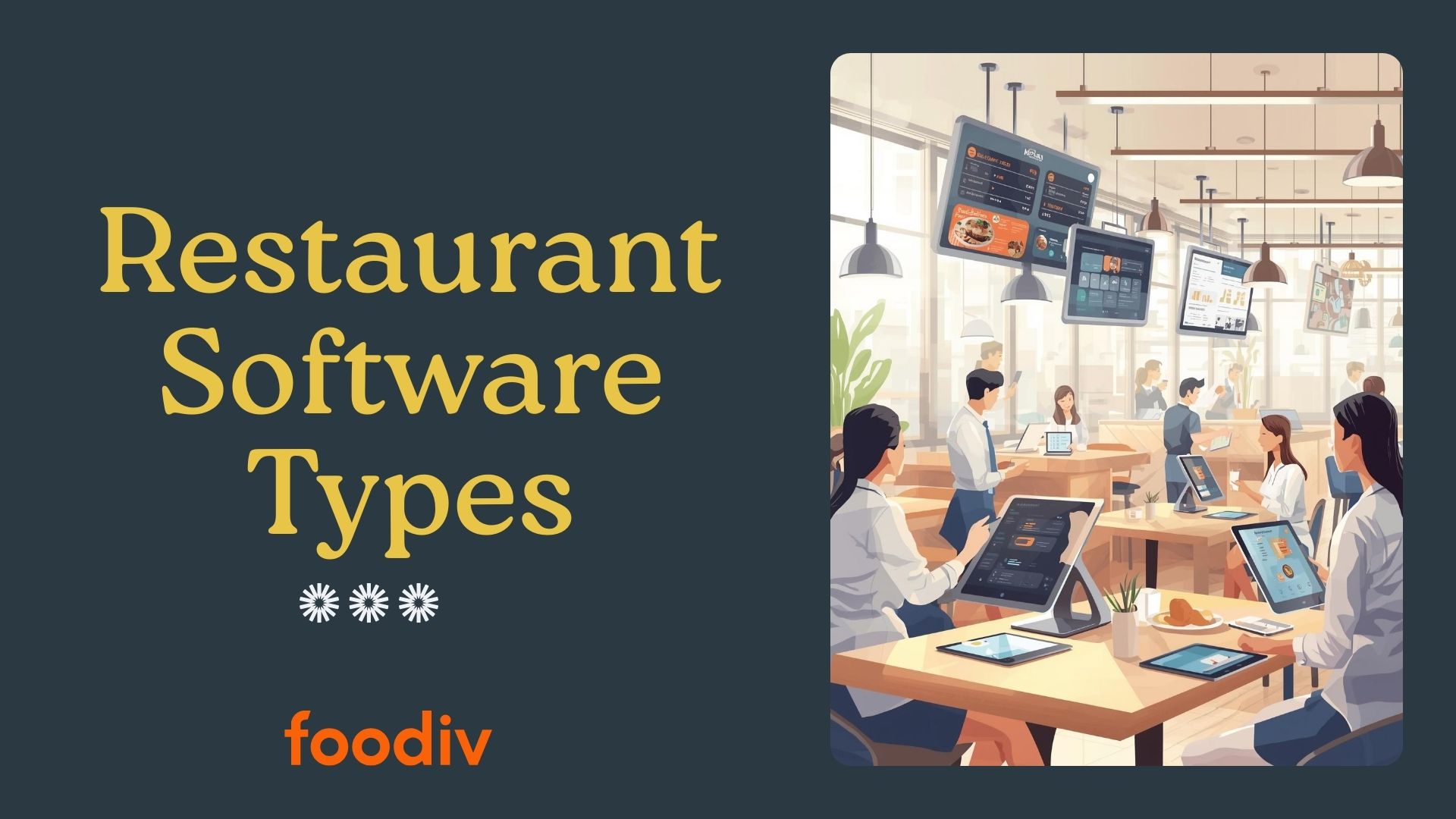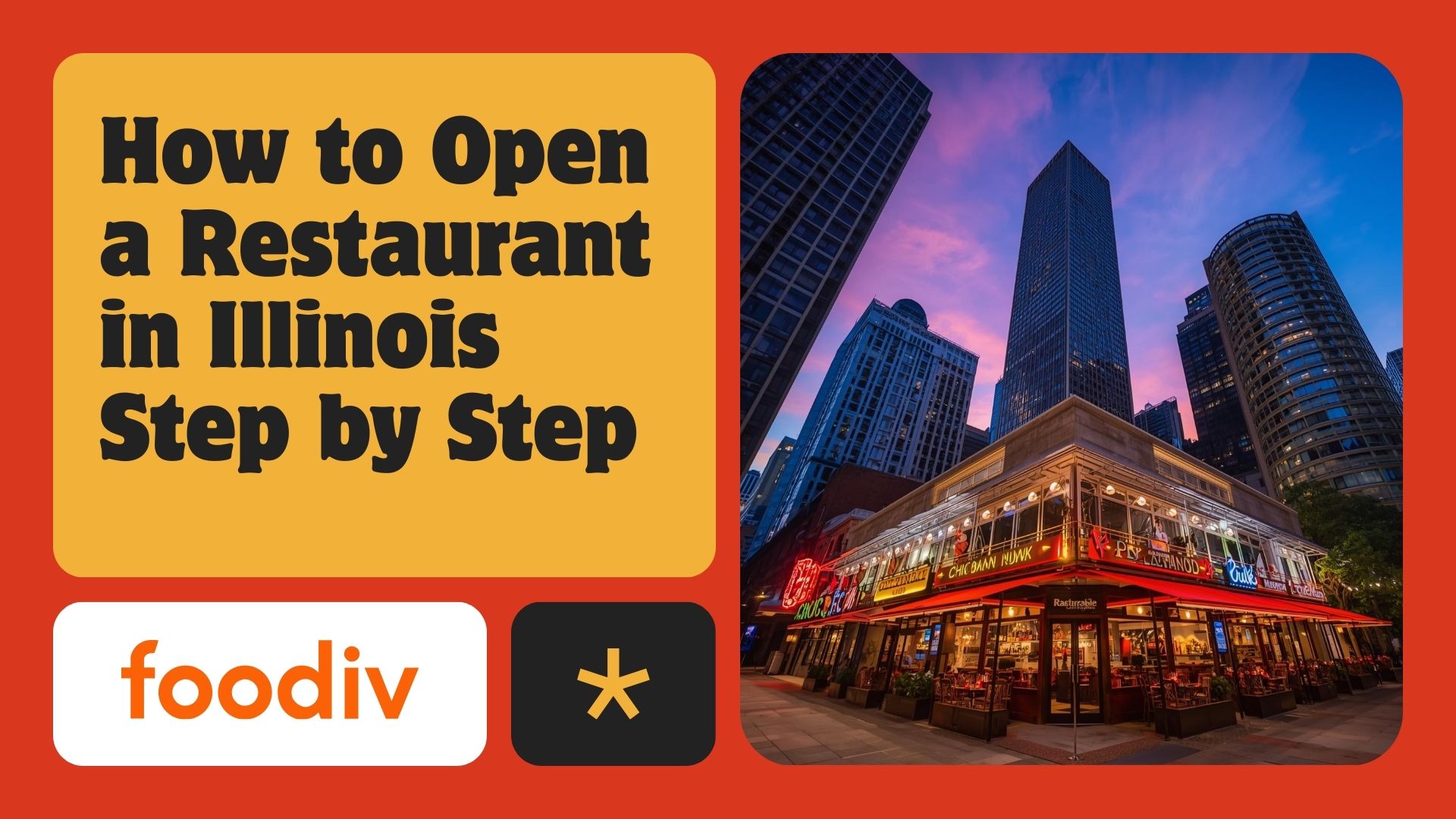
Managing a restaurant is both a rewarding and demanding responsibility. It brings together customer service, team leadership, financial awareness, and a deep understanding of daily operations. A restaurant may serve excellent food, but without effective Restaurant management, it cannot grow or remain sustainable.
The food service industry continues to evolve with changing customer expectations, technology adoption, and competitive pressure. In 2024, the global restaurant management software market alone was valued at over USD 5.5 billion, reflecting the growing demand for streamlined operations and digital tools to support complex workflows. This number is expected to grow significantly through the decade, driven by the need for efficiency and customer engagement.
For restaurant managers and owners, staying ahead requires more than reacting to issues as they arise. It calls for a proactive mindset, structured processes, and a commitment to continuous improvement.
This blog shares insights for those who want to strengthen how their restaurant is managed. Whether you are running a small kitchen, managing a team at a mid-sized bistro, or preparing to open a new location, this guide will offer structured advice and useful perspectives.
What Is Restaurant Management?
Restaurant management is the process of planning, organizing, and overseeing the various aspects that keep a restaurant running smoothly. This includes supervising staff, controlling inventory, managing finances, ensuring regulatory compliance, and maintaining the quality of service and food.
A Restaurant manager’s role goes beyond scheduling shifts or checking on orders. It involves creating systems that ensure consistency and efficiency across the entire operation. Many restaurants use a restaurant management system to support these efforts. These systems help managers track operations, improve accuracy, and streamline workflows.
At its core, restaurant management is about maintaining balance. Managers must handle short-term demands while planning for long-term goals. This means preparing for a dinner rush while also analyzing last month’s expenses. It involves leading a team while listening to feedback. It requires solving problems quickly while setting a positive example.
Restaurant management also plays a critical role in shaping guest experiences. From the speed of service to the cleanliness of the dining area, almost every detail reflects the strength of a restaurant’s management. A well-managed restaurant is not only more efficient, but also more welcoming, dependable, and profitable.
Is It Hard to Manage a Restaurant?
Managing a restaurant involves a wide range of responsibilities that require both strategic planning and daily attention. While it can be a rewarding role, it also presents several ongoing challenges that Restaurant managers must navigate to ensure long-term success.
Below are key areas that contribute to the complexity of restaurant management:
Financial Management
Controlling costs is one of the most critical tasks. Managers need to monitor food costs, labor expenses, utility bills, and other operational spending. Without strong financial oversight, a restaurant may struggle to remain profitable, even during busy periods.
Inventory Management
Inventory management of Restaurant involves tracking ingredients and supplies, preventing waste, and ensuring consistent availability of stock. Poor inventory control can lead to overordering, spoilage, or shortages that affect service quality.
Staff Management
Building and maintaining a reliable team is essential. Managers are responsible for hiring, training, scheduling, and supporting staff. They also need to foster a positive work environment that encourages teamwork and accountability.
Customer Satisfaction
Guests expect more than good food. Service, cleanliness, atmosphere, and attention to detail all play a role in the overall dining experience. Managers must ensure that customers leave satisfied and are willing to return.
Compliance and Safety
Restaurants must follow local health codes, labor regulations, and safety protocols. Restaurant managers are accountable for maintaining standards, passing inspections, and creating a safe environment for both staff and customers.
Market Competition
The food service industry is highly competitive. To remain relevant, restaurants must adjust to customer preferences, seasonal trends, and local competition. Innovation and flexibility help a restaurant stay ahead.
Adaptability
Each day can bring unexpected challenges, such as equipment failure, staff shortages, or changes in customer demand. Managers need to think quickly and make decisions that keep the operation stable.
Work-Life Balance
The fast-paced nature of restaurant work often requires long and irregular hours. Without careful time management, Restaurant managers can face burnout. Achieving a healthy balance is important for long-term effectiveness and personal well-being.
While restaurant management can be demanding, it becomes manageable with experience, the right tools, and a strong support system. Consistent planning, effective communication, and a focus on continuous improvement allow managers to handle these challenges with confidence.
Key Responsibilities in Restaurant Management
Restaurant management involves more than overseeing the flow of a workday. It includes the strategic, financial, and human aspects of running a food service business. A restaurant manager must balance daily tasks with long-term planning to maintain quality, consistency, and profitability.
Below are the main areas of responsibility that define effective restaurant management:
Managing Accounting and Finances
A Restaurant manager must understand the restaurant’s financial health. This includes monitoring revenue, controlling costs, and managing budgets. Reviewing profit margins, sales reports, and expense records allows managers to make informed business decisions. Accurate bookkeeping and coordination with an accountant are also essential.
Inventory and Supply Management
Keeping track of stock levels is crucial to avoid shortages and reduce waste. Managers of restaurants are responsible for ordering ingredients, maintaining supplier relationships, and ensuring that deliveries match the restaurant’s quality and timing needs. Regular inventory checks help identify patterns and minimize unnecessary spending.
Payroll and Staff Scheduling
Staff compensation and shift planning are vital to both compliance and morale. A manager of Restaurant ensures that employees are paid correctly and on time. They must also create balanced work schedules that meet operational needs while avoiding overtime or understaffing.
Customer Service Oversight
Maintaining high service standards is a central part of a Restaurant’s management. This includes handling guest feedback, solving problems quickly, and setting expectations for hospitality. A Restaurant manager leads by example and guides the team in delivering a smooth and enjoyable dining experience.
Marketing and Community Engagement
Restaurant managers often contribute to digital marketing strategies. This includes creating and updating menus, promoting specials, and managing online presence. Staying active on social platforms, collecting reviews, and participating in community events can increase visibility and customer loyalty.
Promoting Innovation
Innovation supports growth and customer interest. Managers can introduce new dishes, adjust service methods, or adopt modern tools. Staying aware of trends and being open to change helps the restaurant remain competitive in a dynamic industry.
Delegation and Leadership
Effective delegation ensures that responsibilities are shared appropriately across the team. Managers must identify strengths, assign tasks clearly, and hold team members accountable. Strong leadership also includes training, mentoring, and maintaining a productive work culture.
These responsibilities require attention, adaptability, and consistency. When performed well, they form the foundation of a well-managed restaurant that satisfies guests, supports staff, and sustains long-term business success.
Best Restaurant Management Tips in 2025
Restaurant management is both an operational responsibility and a leadership role. While tools and systems are important, the success of a restaurant often depends on how people are managed, how decisions are made, and how smoothly daily functions are carried out. There is no single formula that works for every restaurant, but there are practices that consistently support strong performance.
Let’s explore key areas where restaurant managers can focus their attention to improve service quality, boost staff performance, and strengthen the overall guest experience. These ideas are built on principles that apply across different types of food businesses, whether casual, fine dining, or fast service.
We begin with a focus on people, which are often the most valuable part of a restaurant operation.
Staff & Culture
A motivated and well-managed team creates the foundation for excellent service and smooth operations. The work environment, communication style, and leadership approach all affect how employees perform and how long they stay.
Ensure Your Staff Feels Valued
Recognition and respect improve morale and encourage employees to give their best effort. Restaurant managers should acknowledge good work, provide fair treatment, and listen to team feedback. A valued employee is more likely to stay engaged and take pride in their role.
Promote Transparency and Communication
Open communication allows problems to be solved early and reduces confusion. Clear expectations, regular check-ins, and honest conversations help build trust across the team. Transparency about decisions also creates a sense of fairness and shared responsibility.
Encourage Teamwork
A strong team works better under pressure and supports one another during busy shifts. Teamwork can be strengthened through collaborative training, shared goals, and a culture of respect. Restaurant managers should create conditions where helping one another is expected and appreciated.
Focus on Employee Retention
High turnover leads to higher training costs and reduced service consistency. Restaurant managers should aim to build a workplace where people want to stay. This includes fair wages, realistic workloads, opportunities for growth, and a respectful culture.
Lead by Example
The behavior of the manager sets the tone for the entire team. A calm, respectful, and solution-focused leader creates a work environment where employees feel supported. Leading by example builds credibility and encourages professionalism among staff.
Delegate Responsibility Thoughtfully
Delegation helps Restaurant managers focus on high-level tasks while allowing team members to grow. Assigning responsibilities based on individual strengths shows trust and builds skill across the team. Good delegation includes clear instructions, realistic expectations, and follow-up.
Train Continuously
Initial training is only the beginning. Ongoing skill development helps staff handle new situations, maintain consistency, and improve guest experiences. Managers should support continuous learning through coaching, workshops, or team meetings.
Create a Positive and Inclusive Work Environment
Culture shapes how people feel when they come to work. A positive atmosphere where people are treated with fairness, respect, and encouragement leads to better performance. Inclusion ensures that every team member feels welcome and valued, regardless of background.
Investing in staff and culture creates lasting benefits for restaurant performance, team stability, and guest satisfaction.
Menu & Service
The menu is more than a list of dishes. Creating a menu reflects a restaurant’s identity and influences everything from kitchen workflow to customer satisfaction. Service delivery shapes how guests remember their experience. Together, menu planning and service management help maintain consistency, control costs, and support a smooth operation.
Revamp Your Menu Seasonally
Seasonal menus allow restaurants to use fresh, available ingredients while keeping the dining experience interesting for regular guests. Changing the menu a few times a year also helps reduce food waste and control costs. Restaurant managers should evaluate which items sell well and which can be replaced to improve performance.
Plan and Price Menu Items Thoughtfully
A successful menu balances creativity with profitability. Restaurant managers must consider ingredient cost, preparation time, and customer preferences when selecting items. Regular pricing reviews help maintain healthy margins while staying competitive in the market.
Maintain Consistent Quality
Guests return to restaurants that meet expectations. That requires consistency in preparation, presentation, and taste. Managers play a key role in setting standards, training the kitchen team, and addressing quality issues promptly.
Host Private Dining and Events
Offering private dining or small events can open new revenue streams. These experiences often require special attention to planning, staffing, and communication. Managers should ensure that these services align with the restaurant’s brand and can be executed smoothly without affecting regular operations.
Refine the Guest Experience
Excellent service is just as important as great food. Restaurant managers should observe how service flows, how long guests wait, and how issues are resolved. Polished service, friendly staff, and attention to detail help build a strong reputation and positive word of mouth.
A well-managed menu and an organized service experience form the core of what guests see and feel. When done well, they lead to stronger loyalty, higher reviews, and more efficient kitchen operations.
Marketing & Customer Engagement
Successful restaurant management includes more than running smooth operations. It also involves staying visible, relevant, and connected to your customers. Marketing and engagement efforts help attract new guests, build loyalty, and increase repeat visits. Restaurant managers play an important role in guiding these efforts and maintaining a consistent message.
Be Intentional and Consistent with Marketing
Marketing should be a planned effort rather than a last-minute decision. Restaurant managers should develop a schedule that includes promotions, updates, and seasonal campaigns. Consistency in tone, design, and messaging across channels strengthens brand recognition and builds customer trust.
Establish a Strong Online Presence
A restaurant’s website and social media profiles are often the first place potential guests look. Restaurant managers should ensure that menus, hours, and contact details are always up to date. Sharing photos, events, and behind-the-scenes content can help build interest and keep the brand top of mind.
Welcome and Monitor Online Reviews
Reviews are a reflection of the guest experience and offer valuable insight. Restaurant managers should monitor platforms like Google, Yelp, and booking apps. Responding to both positive and negative feedback in a respectful and timely way shows that the restaurant cares about its guests.
Offer Loyalty Incentives and Creative Promotions
Loyalty programs and occasional promotions can encourage repeat business. These do not need to be complex. A simple reward for frequent visits or a limited-time offer can create excitement and keep regular guests engaged. Managers of a Restaurant should track which offers perform best and adjust accordingly.
Focus on Customer Retention
Keeping current guests happy is more cost-effective than constantly seeking new ones. Restaurant Managers should prioritize experiences that encourage return visits. Personal touches, reliable service, and follow-up communication can all contribute to stronger loyalty.
Deliver Memorable Guest Experiences
Every detail, from how the phone is answered to how food is served, contributes to the guest experience. Restaurant managers should coach staff on hospitality, check in with guests during service, and be present to solve any issues that arise. Positive experiences turn first-time guests into regulars.
Marketing and engagement efforts are most effective when they are part of daily operations. When managers stay involved and proactive, these strategies become a natural part of the restaurant’s rhythm and identity.
Financial & Operational Management
Strong financial and operational management helps a restaurant remain stable and profitable, even during uncertain periods. Restaurant Managers must oversee budgets, monitor daily activities, and guide decisions that balance service quality with cost efficiency. When these functions are handled consistently, the business is better prepared for both routine service and unexpected challenges.
Control Costs Without Sacrificing Quality
Restaurants operate on tight margins. Managers need to review food costs, labor expenses, and supplier pricing regularly. Making small adjustments to portion sizes, prep methods, or vendor agreements can reduce waste and improve profitability without lowering quality.
Monitor Sales and Inventory Data
Daily and weekly reports help managers understand which menu items perform well and where money is being spent. Tracking inventory closely also reduces overordering and spoilage. Using this data to make purchasing and pricing decisions leads to more accurate planning.
Plan Ahead with Clarity
Effective planning helps reduce stress during peak hours or special events. Restaurant Managers should prepare staff schedules, review reservation trends, and communicate needs early. This approach allows the team to stay focused and reduces last-minute errors.
Make Time to Work on the Business
It is easy to become caught up in daily tasks, but long-term success requires time for planning and improvement. Managers of a Restaurant should step back regularly to assess performance, set goals, and identify areas for growth. Strategic planning helps shape the future of the restaurant, not just its day-to-day rhythm.
Be Accountable and Stay Flexible
Mistakes and changes are part of restaurant life. Restaurant managers who take responsibility, learn from setbacks, and adapt quickly are better equipped to guide their teams through difficult situations. Flexibility in scheduling, workflow, or vendor relationships can help maintain stability during transitions.
Financial and operational tasks may happen behind the scenes, but their impact reaches every part of the guest experience. A well-managed operation supports consistent service, a positive work environment, and the ability to grow with confidence.
Best Restaurant Management Technology
Technology has become an essential part of modern restaurant management. The right tools help streamline daily tasks, reduce errors, and improve decision-making. For Restaurant managers, technology provides visibility across the business, allowing better control over operations, staffing, and guest service.
Below are key technologies that support effective restaurant management:
Point of Sale (POS) System
A POS system is the central tool for handling transactions, tracking orders, and managing tables. It records real-time data on sales, payment methods, and customer preferences. This information allows Restaurant managers to identify patterns, measure performance, and respond to operational needs quickly.
Inventory Management Software
Managing a restaurant’s inventory manually can lead to errors and waste. Software tools automate inventory tracking, alert managers about low stock, and help calculate food costs. These systems support better purchasing decisions and reduce the risk of overstocking or shortages.
Payroll and Tip Management Tools
Handling staff pay accurately is important for team morale and legal compliance. Payroll systems make it easier to calculate wages, taxes, and tips. They also help Restaurant managers schedule shifts while keeping labor costs within budget.
Online Ordering and Reservation Platforms
Online ordering and booking systems improve the guest experience and reduce pressure on front-of-house staff. These platforms allow customers to place orders or reserve tables through a website or mobile app. Restaurant Managers benefit from better forecasting and reduced wait times during peak hours.
Customer Relationship Management (CRM) Systems
CRM tools store guest information such as preferences, visit history, and feedback. This data can be used to send targeted promotions, recognize repeat guests, and improve service personalization. A well-managed CRM system helps strengthen customer loyalty over time.
Technology should support, not replace, the human side of restaurant management. When used correctly, these tools give managers more time to focus on leadership, training, and quality control while improving efficiency across the business.
Management Tips for Restaurant Owners
While managers handle the daily operation of a restaurant, owners are responsible for setting long-term direction, supporting systems, and ensuring the business remains financially stable. Ownership includes understanding operations but also knowing when to step back and empower others. These suggestions are designed to help owners start a sustainable restaurant business through thoughtful Restaurant management practices.
Hire a Skilled Accountant
Financial management is essential to business success. A qualified accountant helps interpret financial reports, ensure tax compliance, and identify opportunities to reduce costs. Owners should review financial summaries regularly and use this insight to guide future decisions.
Add Delivery and Reservation Services Strategically
Expanding services can increase revenue, but each new channel must be managed carefully. Before offering delivery or accepting online reservations, consider the impact on staffing, kitchen timing, and customer expectations. These services should support operations, not create disruption.
Use Data to Guide Business Decisions
Decisions based on assumptions can lead to missed opportunities or inefficiencies. Owners should review sales, customer trends, and expense reports regularly. Using data allows for more accurate forecasting, better marketing, and smarter resource planning.
Review and Adjust Operating Hours
Some hours may consistently underperform. Owners should analyze traffic patterns to decide whether adjustments are needed. Shortening or shifting hours can lower operating costs without affecting customer satisfaction, especially during slower periods.
Develop a Long-Term Growth Plan
It is important to think beyond daily service. Owners should define what success looks like in one year, three years, and beyond. Planning for new locations, menu expansion, or service upgrades provides structure to guide team efforts and investment choices.
Communicate Clearly with Managers
Restaurant owners should stay involved without interfering with daily operations. Regular check-ins, goal setting, and feedback sessions help align leadership and management teams. When owners and managers work together, the business benefits from both strategic vision and operational strength.
Effective ownership requires both business insight and trust in the management team. These practices help owners support their staff, protect their investment, and create an environment where the restaurant can grow with purpose.
Conclusion: The Recipe for Sustainable Restaurant Success
Restaurant management combines structure, leadership, and adaptability. It is not limited to overseeing tasks or solving immediate problems. It involves creating a system that supports staff, meets customer expectations, and ensures the financial health of the business.
Proper Restaurant management requires attention to both people and processes. Strong leadership builds trust, encourages responsibility, and shapes a positive work culture. Thoughtful planning, consistent training, and the right tools help ensure that daily operations run smoothly. A focus on quality, flexibility, and guest satisfaction creates lasting value.
As the food service industry continues to evolve, managers and owners who remain open to learning and committed to improvement will be best positioned for success. Small changes, made with purpose and consistency, can lead to significant progress over time.
Managing a restaurant is not without challenges. However, with the right strategies, reliable systems, and a supportive team, it becomes a rewarding and sustainable pursuit. A well-managed restaurant does more than serve good food. It creates a dependable experience, a place where people enjoy working, and a business that grows with confidence.











